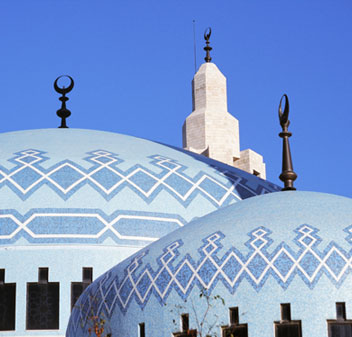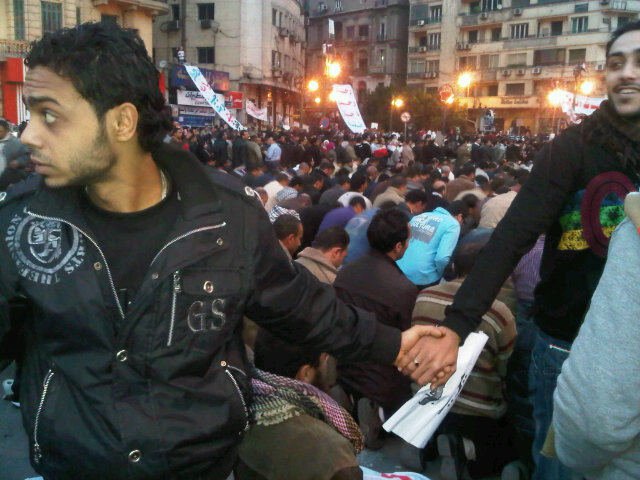Introduction to Islam (Part 5 of 5): The Catholic Response
 Today I would like to conclude my introductory series to Islam. This series wasn’t intended to be an apologetic response to Islam, just an accurate and objective description of Islamic belief and practice. It is my hope that this will lead to a better understanding of Islam by Christians.
Today I would like to conclude my introductory series to Islam. This series wasn’t intended to be an apologetic response to Islam, just an accurate and objective description of Islamic belief and practice. It is my hope that this will lead to a better understanding of Islam by Christians.
Over the course of this series we have looked at the origins of Islam, Muhammad, the teaching of the Qur’an, as well as the faith and obligations of Muslim life. I would now like to conclude by looking at what the Catholic Church had to say about Islam at the Second Vatican Council.
The Catholic Church sets forth its binding teaching regarding Islam in the “Declaration on the Relation of the Church with Non-Christian Religions” (also known as “Nostra Aetate”, literally “In our time”):
#1 In our time, when day by day mankind is being drawn closer together, and the ties between different peoples are becoming stronger, the Church examines more closely her relationship to non-Christian religions. In her task of promoting unity and love among men, indeed among nations, she considers above all in this declaration what men have in common and what draws them to fellowship.
One is the community of all peoples, one their origin, for God made the whole human race to live over the face of the earth. One also is their final goal, God…
The church says that she sees it her task to “promote unity and love”. This unity and love is fostered by considering what unites humankind and, in this “big picture” vision of the world, we are reminded that every single person comes from God and every single one will, some day, return to Him.
#2 … The Church, therefore, exhorts her sons, that through dialogue and collaboration with the followers of other religions, carried out with prudence and love and in witness to the Christian faith and life, they recognize, preserve and promote the good things, spiritual and moral, as well as the socio-cultural values found among these men.
In this paragraph the Church gives a clear exhortation – those praiseworthy aspects of other religions are to be recognised. However, this does not mean we accept everything uncritically from other faiths or that we deny the claims of Christ. There is to be dialogue and collaboration with those of other religions, but, it must be done with great prudence, love, and in a way which gives witness to Jesus Christ and the Gospel.
The document then looks specifically at Islam:
#3 The Church regards with esteem also the Moslems. They adore the one God, living and subsisting in Himself; merciful and all- powerful, the Creator of heaven and earth, who has spoken to men; they take pains to submit wholeheartedly to even His inscrutable decrees, just as Abraham, with whom the faith of Islam takes pleasure in linking itself, submitted to God. Though they do not acknowledge Jesus as God, they revere Him as a prophet. They also honor Mary, His virgin Mother; at times they even call on her with devotion. Further, they await the day of judgment and the reward of God following the resurrection of the dead. Finally, they value the moral life and worship God especially through prayer, almsgiving and fasting.
Since in the course of centuries not a few quarrels and hostilities have arisen between Christians and Moslems, this sacred synod urges all to forget the past and to work sincerely for mutual understanding and to preserve as well as to promote together for the benefit of all mankind social justice and moral welfare, as well as peace and freedom...
The document then concludes by providing for us the motivation for all such interfaith interactions…love:
#5 We cannot truly call on God, the Father of all, if we refuse to treat in a brotherly way any man, created as he is in the image of God. Man’s relation to God the Father and his relation to men his brothers are so linked together that Scripture says: “He who does not love does not know God” (1 John 4:8)…
Next time…
Some time in the future I may write an apologetic response to some of the claims of Islam, particularly with regards to the denial of the divinity of Jesus and the alleged corruption of the Christian Bible. However, this entry brings to a close this introduction Islam. I hope it has been helpful.

Thanks, David! If it is true that Europe will be majority Muslim within 40 years, it’s as well to know a bit Do you think they will be friendly Muslims or angry Muslims? We are presented with an odd portrait of both…
Do you think they will be friendly Muslims or angry Muslims? We are presented with an odd portrait of both…
whatthewestneedstoknow.com
The series was very instructive, I look forward to your apologetic responses regarding anti-Christian Islamic paradigm.
Thanks I’ll probably get around to that in a couple of months – I have a bit of a backlog of posts in draft that I’d like to get through first.
I’ll probably get around to that in a couple of months – I have a bit of a backlog of posts in draft that I’d like to get through first.